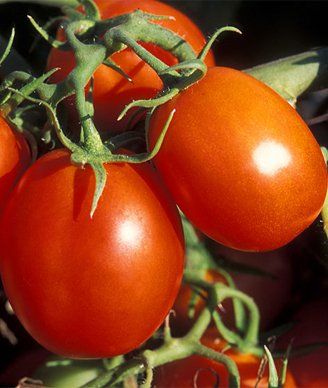Lycopene Intake Linked to Decreased RCC Risk in Women
An increased intake of lycopene may be associated with a decreased risk for renal cell carcinoma, according to data from a study of postmenopausal women.
Lycopene is an antioxidant compound that gives tomatoes their red color.

An increased intake of lycopene may be associated with a decreased risk for renal cell carcinoma (RCC), according to data from a study of postmenopausal women in the Women’s Health Initiative (WHI) Cohort.
Researchers led by Won Jin Ho, MD, MS, of University Hospitals Case Medical Center, Case Western Reserve University, also examined intake of alpha carotene, beta-carotene, beta-cryptoxanthin, lutein, and vitamins C and E, but no further associations with RCC were found.
“Increased lycopene intake among postmenopausal women in the WHI was associated with a lower risk of RCC,” the researchers wrote. “Because there are no current guidelines for RCC prevention or screening, further studies on the mechanism of the potential effects of lycopene on the risk of RCC would be valuable.”
According to background information in the study, published in Cancer, oxidative stress had been linked to the pathogenesis of RCC. Because various dietary micronutrients have antioxidant properties, studies have been undertaken to examine if a link exists between intake of certain micronutrients and the risk for RCC.
In this study, Ho and colleagues looked at dietary micronutrient intake of 96,196 women enrolled in the WHI between 1993 and 1998 who were followed through July 2013. Dietary intake was estimated from a baseline food frequency questionnaire and information on supplement use was gathered from interviews.
During follow-up, 240 women were diagnosed with RCC. The researchers found that the risk for RCC was inversely associated with lycopene intake even after adjustment for age, race, education, BMI, hypertension, smoking, oral contraceptive use, hysterectomy or oophorectomy, physical activity, and energy intake. Women in the highest quartile of lycopene intake had a 39% lower risk for RCC compared with women in the lowest quartile of intake (HR = 0.61; 95% CI, 0.39-0.97).
The researchers pointed out that the reduced risk for RCC associated with lycopene intake seen in this study has not been found in other studies; however, the discrepancy in results “may be caused in part by different study design methods and sample selection,” the researchers wrote. Additionally, the note the study limitation that the data on dietary intake was taken from a baseline food questionnaire and not from plasma levels of antioxidants.